Improving your health through research and innovation.
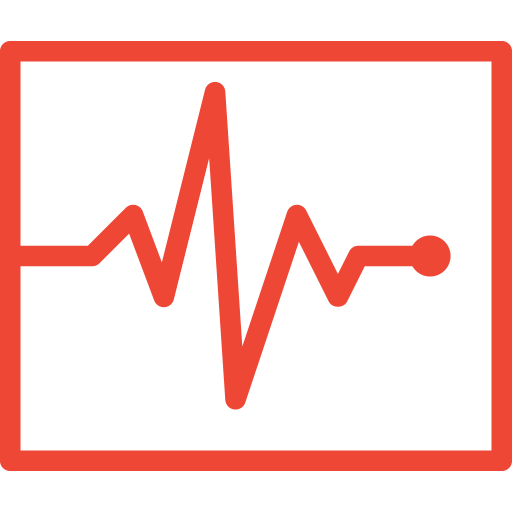
Chronic Disease Management and Remote Health Monitoring
We build chronic disease management solutions based on semi-automatic execution of clinical practice guidelines collecting patient status from Electronic Health Record systems and wireless medical sensor devices, and provide decision support to health care professionals, as well as to the patients to manage their chronic conditions. We enable patients, caregivers, and health care professionals to be alerted about critical situations about patient’s current status.
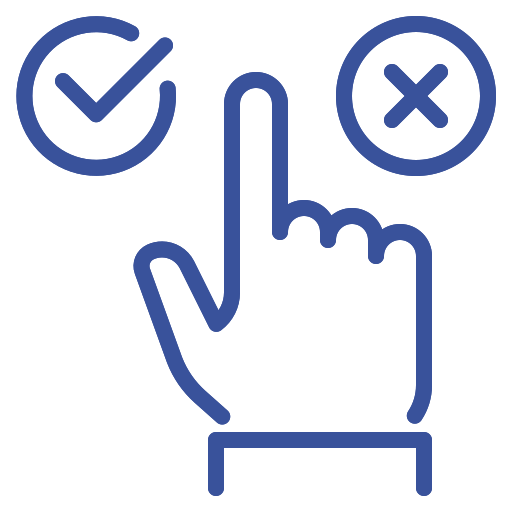
Clinical Decision Support Services for Personalized Care
We extract implementable technical specifications from evidence based clinical guidelines, and then implement these specifications as Clinical Decision Support (CDS) software services for delivering personalized care. Till now, we have developed several clinical decision support services for NICE clinical guidelines, NICE care pathways, ESC guidelines, EASD guidelines, GOLD guidelines, and Turkish clinical guidelines for hypertension, diabetes, cardiovascular disease, chronic kidney disease, stroke, palliative care, etc.
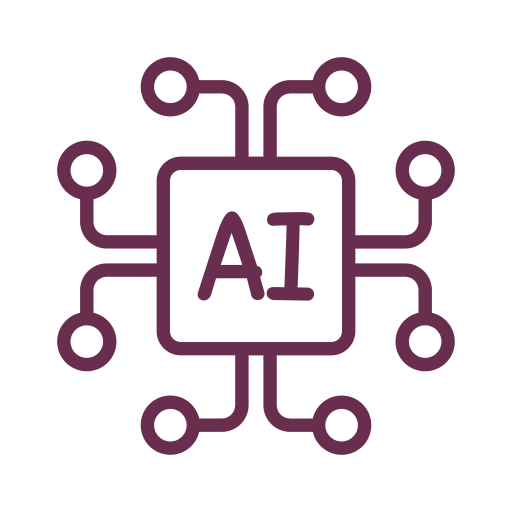
Artificial Intelligence on Health Data
We build AI-enabled digital solutions for different health use cases, such as predicting risk scores for chronic diseases, predicting major adverse events, predicting post surgery complications, prediction of 30-day readmission risk, prediction of morbidity, early identification of palliative and end-of-life care needs, and identification of multimorbidity patterns and polypharmacy correlation.
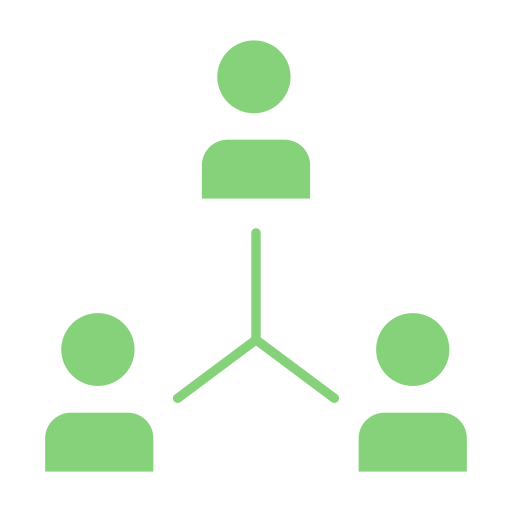
Federated Learning
We enable health data owners to train machine learning models on distributed datasets without moving the data out of the owners’ premises through our Privacy-Preserving Federated Machine Learning platform. While the datasets never leave the data owners’ servers, the platform communicates with each dataset endpoint to build partial models and builds a boosted/merged machine learning model on the platform.

FAIRifying Real-World Health Data for Secondary Use
We develop technical and semantic interoperability solutions to FAIRify EHR data for secondary use purposes. Our Health Data Preparation Suite enables FAIRified health data to be accessed for both training and running AI models. This suite enables to access data in large batches (for model training) as well as dynamically accessing single records when the AI models are run for predictions.

Interoperability between Health IT Systems
We provide solutions for integrating disparate, heterogeneous health IT systems. We have an extensive expertise in implementing interoperability solutions based on international eHealth standards and IHE integration profiles. For clinical research institutes aiming to access Electronic Health Records (EHRs) for research purposes, we address semantic interoperability hurdles and enable meaningful analysis of electronic health records through a semantic metadata registry and a terminology mapping server.

Security and Privacy Solutions for eHealth Applications
We develop security and privacy solutions for eHealth applications including Authentication, Authorization, Anonymization and De-Identification methods, Audit mechanisms, and Consent Management Tools. We have a specific tool for anonymizing and de-identifying FHIR resources, namely AnonyFHIR.
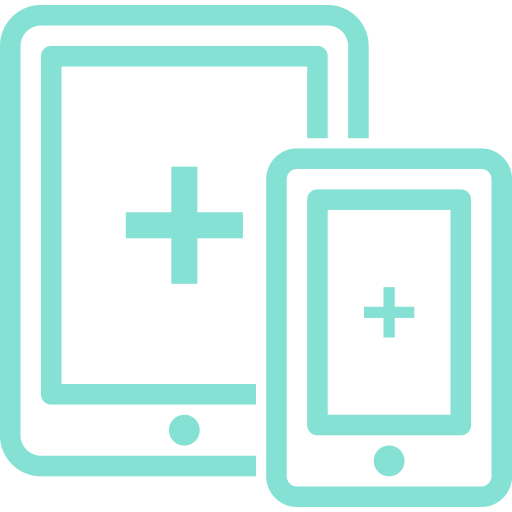
Mobile Health Applications
We develop mobile health applications that facilitate close cooperation between healthcare professionals and patients. We offer mobile interfaces for patients to track their health status, view lab results, monitor past illnesses, and keep track of body parameters and activities. Our mobile health applications collect vital signs from wireless medical sensors and provide the co-management of chronic diseases by patients and caregivers.
Take a look at what we have achived in eHealth so far:
Chronic Disease Management and Remote Health Monitoring Systems
Development of an Integrated Care Platform that equips the multi-disciplinary care team members with a tool to create and execute personalised care plans for patients suffering from multiple chronic diseases in C3-Cloud, ADLIFE, and CAREPATH projects.
Development of a Chronic Disease Management Platform (KronIQ) enabling screening and monitoring of chronic diseases in line with evidence based clinical guideline recommendations. This platform is served as the Chronic Disease Management Platform of Turkey, currently serving more than 25.000 Family Medicine Practitioners. As of August 2024, more than 120 million screening and monitoring episodes (hypertension, CVD risk, diabetes, obesity, elderly monitoring) have been conducted over the platform since July 2021. Another version of this platform is currently being adopted to local needs and guidelines of Qatar, to be used as the disease registry and management platform.
Development of several clinical decision support services for cardiovascular disease risk prediction such as SCORE, QRISK,ACC/AHA and automating treatment suggestions based on clinical guidelines such as NICE clinical guidelines, NICE care pathways, ESC guidelines, EASD guidelines, GOLD guidelines, and Turkish clinical guidelines for hypertension, diabetes, cardiovascular disease, chronic kidney disease, stroke, palliative care, etc.
Development of personalized remote monitoring platform for cardiac patients with electronic implant devices through execution of clinical guidelines in the iCARDEA project.
Development of an intelligent monitoring platform for cardiac patients providing decision support to healthcare professionals by processing patient data from wireless medical sensors and already available patient data in homecare and hospital settings in the SAPHIRE project.
Patient Empowerment through Mobile and Web Based Platforms
Development of a Patient Empowerment Platform in ADLIFE and CAREPATH projects, that guides the patient to follow his/her treatment plan, provide educational materials, enable collection of PROM/PREMs from patient, enable collection of symptoms and feedback from the patient, enable shared decision making via decision aids. The platform also supports video conferencing, asynchronous messaging with healthcare professionals, patient forum enabling discussion among patients, and integration with medical devices to collect patient recorded vital signs and clinical parameters.
Development of a Virtual Arthritis Clinic Service connected with EHR / PHR systems and healthcare professionals in ICT-PSP PALANTE project for empowerment of arthritis patients.
Development of a Recommender Engine connected with EHR / PHR systems and healthcare professionals in EMPOWER project for empowerment of diabetes patients.
Development of a mobile application, Diyetick, for personalized diet management in cooperation with Acıbadem Hospital Group and Turkish Telecom, which currently has thousands of users.
Achieving Interoperability between Health IT Systems
Extensive experience in Health IT System integration via implementation of international standards including HL7 FHIR, HL7 v2, v3 messaging, HL7 CDA, C-CDA, many IHE profiles including but not limited to IHE XD*, PIX, ATNA, RFD, QED, XPHR, CM, DEC, CRD, IDCO, DEX.
Successful implementation of these standards in the interoperability architectures of various EU supported projects including DataTools4Heart, AICCELERATE, AI4HF, CAREPATH, ADLIFE, FAIR4Health, C3-Cloud, Power2DM, iCARDEA, and SAPHIRE.
Development of onFHIR.io Repository, which is a secure and high-performance health data repository based on HL7 FHIR® standard that can handle records of millions of patients without compromising for write or query performance. onFHIR.io is used as the cloud-based clinical data repository in our H2020 and Horizon Europe projects: C3-Cloud, Power2DM, ADLIFE, CAREPATH, FAIR4Health, DataTools4Heart, AI4HF, AICCELERATE, and also as the backbone of national Chronic Disease Management Platform of Turkey.
Providing open source implementation of the ICT-PSP epSOS specifications for cross-border patient data exchange, which later turned into a multi-national effort (OpenNCP).
Implementation of the Turkish pilot in epSOS for cross-border patient summary exchange on top of the national infrastructure SağlıkNet ("HealthNet"). As the leader of validation work package, coordinating the interoperability testing activities of all epSOS nations for cross-border electronic patient summary and prescription exchange.
Development of a medical device interoperability gateway that communicates with both standards based (ISO/IEEE 11073, Continua Health Alliance, and Bluetooth LE) and proprietary devices.
Creation of a pan-European roadmap for semantic interoperability of national/regional eHealth systems in the RIDE project.
Security and Privacy Solutions for eHealth Applications
Implementation of a domain independent security and privacy tool, onAuth, as a security and privacy framework implementing modern Web authorization specifications like OAuth 2.0, OpenID Connect 1.0 and Smart App Authorization, which has been integrated with onFHIR.
Implementation of an open-source anonymization and de-identification tool to handle the privacy challenges while enabling secondary use of sensitive health data. It is designed to work on an HL7 FHIR API so that it can be used on top of any standard FHIR Repository as a data de-identification, anonymization, and related actions toolset.
FAIRifying real-world health data for secondary use
Development of tools and technologies to securely migrate legacy data into FHIR resources so that health data can easily become Findable, Accessible, Interoperable and Reusable (FAIR).
Development of a Data Curation Tool under the umbrella of FAIRification tools within the scope of FAIR4Health project. This tool has been extended in DataTools4Heart and AI4HF projects, to build a high-performant and easy-to-use ETL (Extract, Transform, Load) tool, named toFHIR, to transform existing health datasets from various types of sources to HL7 FHIR.
Development of a Feature Extraction Suite for enabling FAIRified health data to be accessed for both training and running AI models. This suite enables to access data in large batches (for model training) as well as dynamically accessing single records when the AI models are run for predictions. It builds upon a declarative language on top of FHIR Search and FHIR Path specifications to extract data from a FHIR repository in tabular or graph format suitable for AI and data analytic tasks. This suite has started to be built within the scope of FAIR4Health project, and is currently being utilized and extended in two Horizon Europe projects of SRDC, DataTools4Heart and AI4HF, for creating the training data from more than 10 clinical sites for AI Models to develop predictive models focusing on Heart Failure.
Development of the Health Data Ingestion Stack which provides a package of adapters feeding data extracted from sensor data streams, real-time activity tracking devices, medical events from Healthcare Information Systems and historical medical summaries into the Big Data Platform to be used readily by health data analytics services.
Development of a scalable semantic interoperability middleware enabling secondary use of EHRs for clinical research studies in the SALUS project, coordinated by SRDC. Implementation of several post-marketing safety study tools, such as case series characterisation and open-ended temporal pattern discovery to be used by safety analysts working at pharmacovigilance centres and pharmaceutical companies.
Artificial intelligence on health data
Delivering data management infrastructure for AICCELERATE Smart AI applications, and providing a scalable data integration suite to migrate legacy EHR data to a secure, scalable health data repository in standard based format, and a feature extraction suite to get the health data ready to be processed by AI algorithms.
Development of an Early Detection System (EDS) to identify and stratify children with palliative care needs in the scope of PALLIKID project. The EDS is based on a predictive model using ML algorithms trained on EHRs to conduct this detection.
Development of an Tracebility and Monitoring Tool for post-deployment of AI models within the scope of AI4HF Project. The AI monitoring dashboard presents live information to the end-users, including time-series statistics and visualisations that will inform on potential deviations, anomalies or biases of the AI model performances. The AI product passport provides key information about the AI’s production and maintenance, including model properties and hyperparameters, training and testing datasets, evaluation metrics and results, biases and other limitations, ethical approvals and data governance, as well as monitoring and continuous evaluations.





